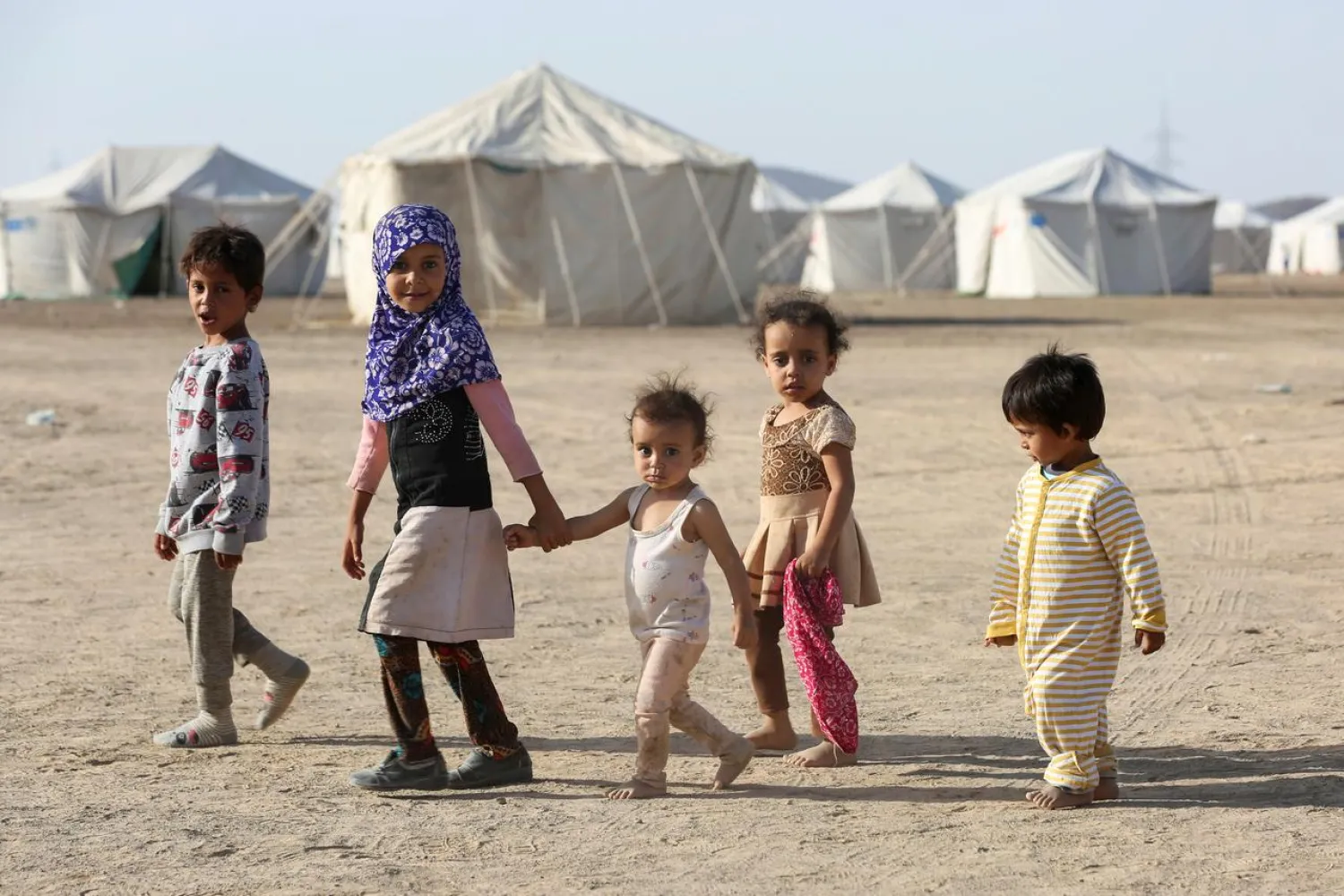Houthi militias have not only displaced thousands of Yemenis over the past years but also targeted those displaced in the camps on the outskirts of Marib governorate with missiles, creating a new wave of displacement to Marib city.
The Government of Yemen's Executive Unit for Internally Displaced Persons issued a report on this and affirmed that more than 1,500 families, equal to 10,000 people, were forced to flee again from Mudghal district in Marib’s outskirts to its capital and other government-controlled districts as a result of Houthi attacks.
According to the report, of which Asharq Al-Awsat has obtained a copy, Raghwan district in northwestern Marib has hosted thousands of displaced people from the conflict areas in Majzar and Naham districts.
The total number of internally displaced persons has amounted to more than 20,000, the report noted.
“Due to the clashes and the intensified battles, thousands of families were forced to flee from their homes. Some were displaced for the second time and others for the third time.”
Some fled on feet and were displaced to the districts of Sirwah, Medina, and Wadi, while others were displaced to nearby locations within the directorate itself, the report indicated.
It recalled the first tragedy resulting from the torrents that swept away some camps in all directorates of the governorate, with the absence of any intervention by the humanitarian partners in the district.
It further pointed out that the meteorology department expects heavy rains in the coming days and fears a new tragedy for the displaced in the governorate directorates.
The Executive Unit’s field monitoring and evaluation team hastened to monitor the recent displacement to know the whereabouts of those displaced. It requested its partners to respond quickly to provide them with all their needs, in terms of shelter and non-food items.
It set toilets, provided water tanks and hygiene bags, and asked the Food Security Bloc to direct partners to respond rapidly and cover the needs of the displaced, including food baskets.









